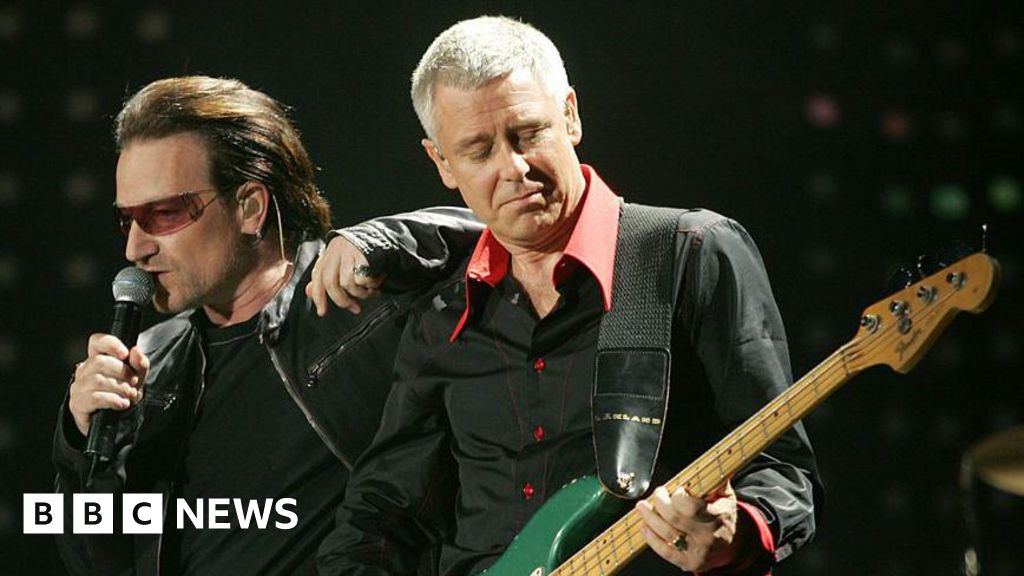ARTICLE AD BOX
By Mark Savage
BBC music correspondent
Image source, Gary Gershoff/Getty
Image caption,Meat Loaf's I'd Do Anything for Love (But I Won't Do That) reached number one in 28 countries
It's one of the greatest rock music mysteries of all time. What would Meat Loaf not do for love?
The late US singer's Grammy-winning power ballad I'd Do Anything For Love (But I Won't Do That) blustered its way to the top of the charts in 1993.
Over 12 minutes of Wagnerian melodramatics, he repeated that guarantee no less that 30 times - but fans have long been confused about what it was he wouldn't do. Go vegan? Bribe a priest? Give a gun to a monkey?
The star gave one possible answer during his cameo in Spice World: The Movie.
In character as the Spice Girls' driver, the star is asked to clean out the permanently-clogged toilets of their tour bus.
"Listen, I love these girls, and I'll do anything for them," he tells their manager. "But I won't do that."
Warning: Third party content may contain adverts
Following Meat Loaf's death at the age of 74, there has been renewed intrigue about the song's meaning - but the answer to this rock conundrum is much simpler than you think.
In the lyrics, Mr Loaf says he won't move on, or screw around, or stop dreaming about the object of his affections (billed in the song as "Mrs Loud", she was in fact British singer Lorraine Crosby).
In fact, every time he sings "I won't do that", it's to reject the possibility of a specific future transgression.
Jim Steinman, who wrote the song, thought fans might be stumped by the refrain - which he had actually recycled from the Bonnie Tyler song Getting So Excited.
"When we were recording it, Jim brings up the thing - he says, 'People aren't gonna know what that is,'" Meat Loaf recalled in 2014.
"I said, 'Of course they are. How can they not know?' He goes, 'They're not gonna.'"
Steinman was proved right.
Meat Loaf: The music legend's life in video
"What happens is, I get this question all the time," Meat Loaf told VH1 Story Tellers in 1998. "I bet if I said, 'Do you have a question', people would raise their hand and they will ask me... 'What is that?'
"Well, I'm here tonight to help you out," he continued, wheeling out a giant blackboard of the lyrics and illustrating the syntax with a pointy stick.
"There are different lines every time, before every chorus," he explained.
"I'll never forgive myself if we don't go all the way tonight / I would do anything for love / But I won't do that.
"I'll never stop dreaming of you every night of my life / I'll do anything for love / But I won't do that.
"I'll never forget the way you feel right now / I will do anything for love / But I won't do... what?"
The audience replied, in unison: "That!"
"Do we understand it?" asked professor Loaf. "It's the line before every chorus.
"In other words, you can insert your own line."
Things Meat Loaf says he will never do in the song:
- Lie to you
- Forget the way you feel right now
- Forgive myself if we don't go all the way tonight
- Do it better than I do it with you
- Stop dreaming of you every night of my life
- See that it's time to move on
- Be screwing around
Whether intrigued by the mystery or seduced by the grandiose romanticism, fans embraced I'd Do Anything in 1993. It spent seven weeks at number one in the UK, becoming the best-selling single of the year and rejuvenating Meat Loaf's career.
The single edit - at a mere five minutes long - added to the song's mystique, as some of the key lyrics were cut out.
But Meat Loaf and Steinman insisted the 12-minute album version was the definitive take.
"Bombastic? Of course it's bombastic," Steinman told Q magazine. "I take that as a compliment. Rock 'n' roll is the most bombastic form ever - heightened, over-sized, gigantic, thrilling and silly."
Meat Loaf: "I either want to die in my sleep or die on stage"
Meat Loaf, ever the romantic, felt the scale of the song was entirely appropriate.
"You read that it's bigger than life, but it's not," he said. "It's as big as life, not bigger, because life is huge. Life is very dramatic at all times.
"People say, 'The songs are so long,' but they're condensed life stories. Twelve minutes is rather short for Anything For Love. Eight minutes isn't too much for Paradise by the Dashboard Lights. Those songs are about entire lifetimes."
And what about his own relationships?
Asked in 1996 what he was prepared to do for his first wife, Leslie, the star replied: "Wash up. Take out the rubbish. Everything. But doesn't everybody?"
Additional research and reporting by BBC culture reporter Paul Glynn.
Follow us on Facebook, or on Twitter @BBCNewsEnts. If you have a story suggestion email entertainment.news@bbc.co.uk.

 3 years ago
60
3 years ago
60








 English (US) ·
English (US) ·